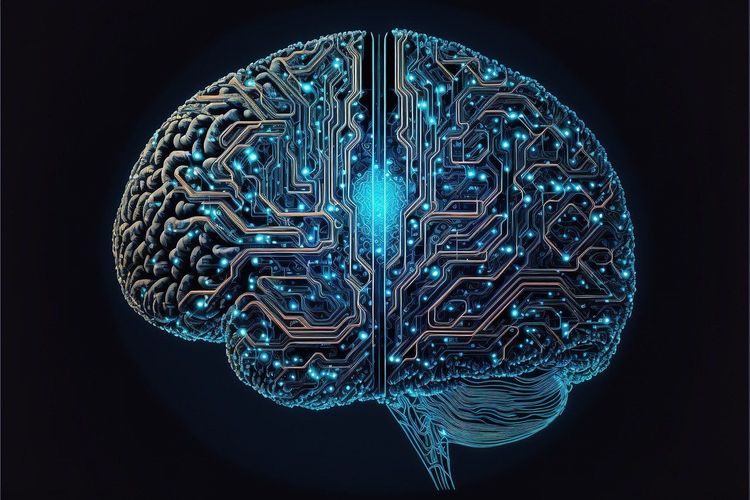At the Transform 2024 event, Elastic CEO Ash Kulkarni and DocuSign CPO Dmitri Krakovsky discussed the transformative role of generative AI in enterprise search and contract management. Their insights underscored the growing significance of AI-driven search capabilities for businesses managing large volumes of data and complex contracts.
Enhancing Unstructured Data Analysis
Elastic has significantly evolved its enterprise search approach with the integration of generative AI. In May 2023, the introduction of the Elasticsearch Relevance Engine (ESRE) marked a major advancement in Elastic’s search technology strategy. ESRE merges traditional keyword-based search with advanced vector search capabilities, offering a deeper understanding of context and semantics within vast data repositories. This hybrid model allows Elastic's customers to retrieve relevant documents more effectively, utilizing vector search, BM25 text search, or a combination of both.
Kulkarni highlighted the firm’s advancements in retrieval-augmented generation (RAG) within its vector database technology, noting, “We’re probably one of the most widely used vector databases out there.” He emphasized that Elastic's implementation of RAG enhances its database functionalities, building on years of work in Elasticsearch.
Kulkarni elaborated on the robust capabilities now available, including permissions, faceted search, hybrid search, and the ability to combine different search techniques. He stated, “It is crucial to provide developers with choice, functionality, and openness regarding the models they choose. That will be part of our DNA.”
With the rapid evolution of AI, model selection is paramount. Kulkarni indicated that customers are increasingly distributing queries across various large language models to optimize accuracy and cost.
AI-Driven Contract Management Advancements
DocuSign is leveraging AI to revolutionize contract management. Krakovsky articulated their vision, stating, “We’re just scratching the surface in our space, having agents assist in contract negotiations.” This approach hints at a future where AI plays an active role in contract negotiations.
The Intelligent Agreement Management (IAM) platform is designed to turn static contract data into actionable insights. Its core components—Maestro, Navigator, and App Center—collaborate to analyze contracts, addressing a significant gap in enterprise digitization. As Krakovsky explained, “While most enterprises have digitized operations, contracts remain largely static PDFs, making it difficult to query or analyze them effectively.”
IAM transforms these static documents into structured data, enabling systematic analysis. Krakovsky illustrated its impact with an example of a customer with around 70 contracts, revealing that they were spending hundreds of millions on varying terms. By aggregating and analyzing these contracts, DocuSign helped the customer identify inconsistencies, saving over $100 million in expenses. This shift from manual reviews to automated processes demonstrates IAM’s potential to enhance contract management significantly.
Navigating AI Adoption Challenges
Both executives stressed the importance of responsible AI adoption. Krakovsky emphasized the need for caution: “We have to move fast, but we must be thoughtful about the questions that arise from using AI,” particularly regarding sensitive contract data.
DocuSign prioritizes data security and transparency. Krakovsky remarked, “We are very cautious and transparent about our practices. When using customer data for training, we seek explicit permission.”
The executives also highlighted the need for comprehensive solutions rather than piecemeal approaches. Krakovsky remarked, “Our goal is to provide end-to-end solutions instead of forcing customers to piece together multiple components.”
Optimizing AI Costs and Resources
Cost efficiency is a critical consideration in AI adoption. Krakovsky noted the importance of maximizing resource utilization: “Understanding how we assemble and leverage our resources is crucial for maintaining value, especially given the scale at which we operate.”
Kulkarni predicted shifts in AI economics, stating, “The cost of inference is likely to decrease due to advances in hardware and technologies, alongside increased competition among large language model providers.”
Looking to the future, both executives discussed the expansion of AI capabilities. Kulkarni referenced multimodal AI models that can process various data types and provide cohesive responses. Krakovsky outlined potential applications in contract management, such as identifying insights, ambiguities, and compliance issues, many of which can be addressed automatically.
Real-World AI Implementation Examples
The discussion included practical examples of AI applications in enterprises. Kulkarni shared how Cisco used Elastic’s technology to automate customer support functions, freeing engineers to focus on more valuable tasks. He also highlighted a Fortune 100 bank using Elastic to transform wealth manager-client interactions through AI-powered search tools, creating a personalized “one-person Bloomberg terminal.”
From enhanced search capabilities to AI-assisted contract negotiations, the potential applications of AI are vast. However, unlocking this potential requires careful attention to technical, ethical, and operational challenges, including data privacy, model transparency, and cost-effective scaling.







